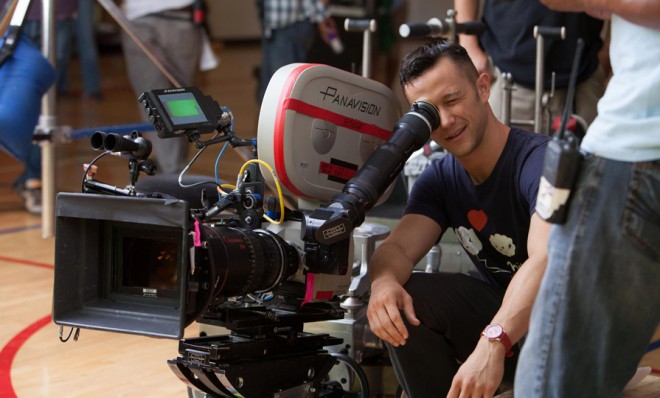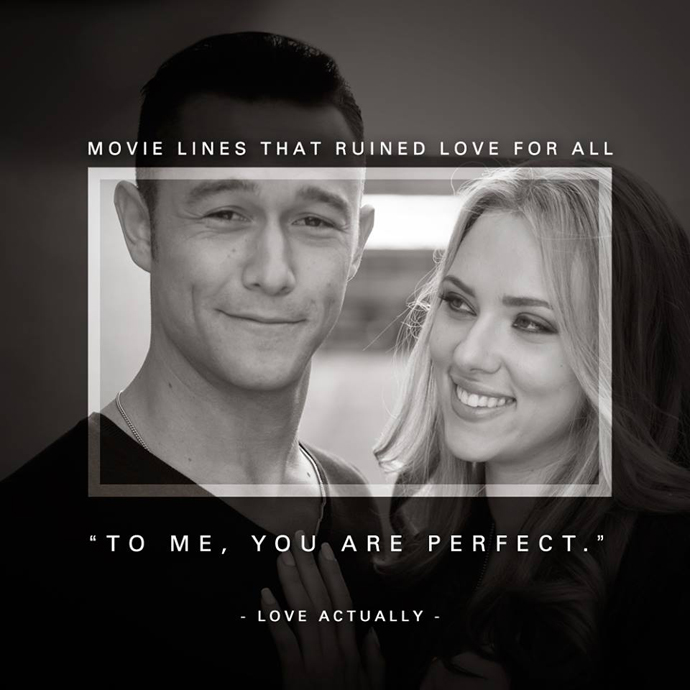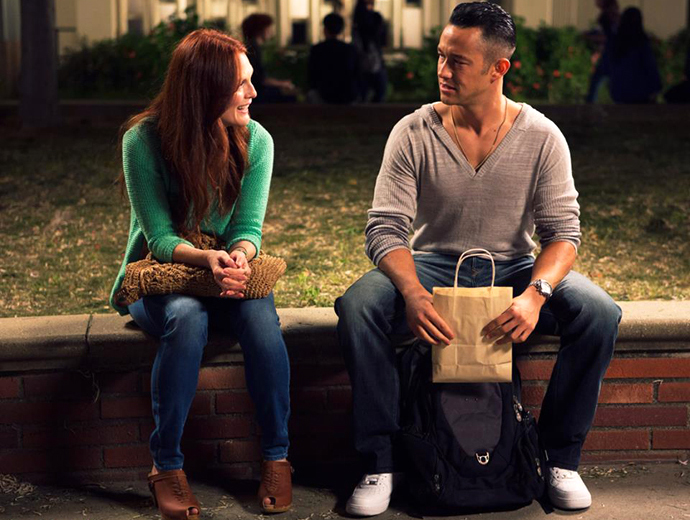Don Jon star Joseph Gordon-Levitt on writing and directing his first feature film
"If you're comparing your real life to fantasies you see in a movie, or in pornography, you're bound to be disappointed."

A free daily email with the biggest news stories of the day – and the best features from TheWeek.com
You are now subscribed
Your newsletter sign-up was successful
The last few years have been kind to Joseph Gordon-Levitt. After cutting his teeth as a child star in NBC’s Third Rock From the Sun, Gordon-Levitt transitioned into a leading man with widely acclaimed performances in indie projects like Brick and (500) Days of Summer. But if those films proved that Gordon-Levitt could carry a film, his more recent work — an astonishing run that includes performances in films like Inception, 50/50, The Dark Knight Rises, Looper, and Lincoln — proved that he could break into the mainstream without giving up any of his idiosyncratic charms as a performer.
On Friday, Gordon-Levitt’s résumé gets another upgrade with his new comedy Don Jon, a passion project that he wrote, directed, and starred in. In Don Jon, Gordon-Levitt plays Jon, a young man so addicted to watching pornography that he loses his perspective on the real women in his life — a group that includes Scarlett Johansson and Julianne Moore.
I recently sat down with Gordon-Levitt to talk about Don Jon, his work with his multimedia production company HitRecordJoe, and his future as both an actor and director. Here's a (slightly edited) transcript.
The Week
Escape your echo chamber. Get the facts behind the news, plus analysis from multiple perspectives.

Sign up for The Week's Free Newsletters
From our morning news briefing to a weekly Good News Newsletter, get the best of The Week delivered directly to your inbox.
From our morning news briefing to a weekly Good News Newsletter, get the best of The Week delivered directly to your inbox.
This is your first-feature length credit as both a screenwriter and a director. Why did you choose Don Jon for your debut?
At its core, [Don Jon is] a movie about how people treat each other like things more than people sometimes, and how the media can play into that. And I imagine that for me, it comes from having grown up working as an actor my whole life. Actors in our culture do sometimes get treated more like objects on a shelf than people.
But I actually don’t think it’s just actors. I think that everybody experiences this. We have a tendency to pigeonhole each other and put each other in boxes with labels, and I think all kinds of media contribute to that.
One of the main themes in Don Jon is how we all romanticize romantic relationships in some way — whether it’s through pornography or romantic comedies. What do you think people can do to keep their unrealistic fantasies from damaging their realities?
A free daily email with the biggest news stories of the day – and the best features from TheWeek.com
First of all, I think it’s about recognizing that fantasies that are portrayed on the screen are just that. If you’re comparing your real life to fantasies that you see in a movie, or in pornography, you’re bound to be disappointed — because real life is not simple. Real life is actually a lot more beautiful than that, and rich with detail and nuance, but you’ll miss all that nuance and all that beauty if you’re too busy comparing yourself, or comparing your real life, to simplistic fantasies.
I would say that’s a good first step. Just embracing what’s unique about every moment, instead of constantly comparing it to a static set of expectations.

Don Jon also tackles the modern obsessions with non-sexual stimulation: Tony Danza’s character is always watching football, Brie Larson’s character is always on the phone…
We’re all aware that’s happening in our world, but I’m not one to say that the media or the technology itself are at fault. I’m actually personally of the belief that that same technology can be used for incredibly positive things. For me, the movies that I watch in my life, or the TV shows, [or] the books that I read, or whatever I get from the internet and the stuff that I do with my phone — those are, I think, really positive and meaningful things. It’s really about how you use the technology.
While we’re on the subject of technology, I saw a video you did earlier this year thanking users of HitRecordJoe, saying that working on short videos for the site helped you become a better filmmaker. Can you talk about how you’ve evolved as a filmmaker?
We call HitRecord "an open collaborative production company." Anybody can contribute to these collaborative projects, and I direct them, and that experience is enormously helpful. It’s modeled after a film set; that’s how a film set works, too.
Filmmaking is enormously collaborative. Chris Nolan is the director of The Dark Knight Rises but there are a ton of artists, all of whom contribute a lot — and [Nolan] is the first one to thank all of those artists who do contribute. The same goes for Don Jon. Yes, I wrote the script and I directed the movie and I played the main character, but so many people contributed so much to that movie. I definitely could not have done it alone. At all. Not even close.
HitRecord is set up that way. We’ve screened some of our short films at festivals, and we’ve published a couple of books. And we’ve put out some records of our music. I learned so much from the experience — about leading a big collaborative process with lots of people contributing.
I recently interviewed (500) Days of Summer screenwriter interviewed Michael Weber, and he said that you were the most prepared actor he’s ever worked with — in terms of not only knowing the character but knowing how everything fits into the whole picture. Can you talk about your preparation for a role?
A lot of work. I love to work. I’m fortunate to get to do something I really like for a living, and I do it all the time. It’s interesting though: Preparation is really important, but it’s also important to let go of that preparation right at the moment. That’s something I’ve noticed in a lot of my favorite directors that I’ve worked for. They prepare like crazy and they have a very thorough plan. But then on the day [of filming], if something comes up — whether it’s a problem or just a new idea — they’re ready to change. They don’t necessarily change, but it's a decision they have to make, whether it’s "Yes, let’s do this new thing," or "No, let’s stick to the plan."
That’s something Chris Nolan in particular [is good at]. Steven Spielberg’s good at it, too. Rian Johnson, who made Looper — really good at the same thing. And those are three very different guys, and three different filmmakers. They have that in common. That balance.
Is it harder when it’s your own project? To say, "This isn’t working with these actors," or "Maybe I should change the script"? Or is it easier because it’s your own work?
Writing [Don Jon] was so informative. Normally when you’re on an acting job, you get a few months with the script before you shoot. But with this movie, I had a few years with this character banging around in my head before we got to shoot. So by the time we went into production, I was so used to the material. I knew it backwards and forwards, and that makes it easier. That level of familiarity.
So were you changing things on set or was everything as you had written it and planned it out?
You are always changing things. No matter what. I’ve never seen a day on a set where something doesn’t change. That’s just how it goes, and that’s the fun of it. That’s the difference between making a film and writing a novel — the chaos of the moment comes into play.

What surprised you the most as you were bringing Don Jon to life?
The performances given by both Scarlett and Julie surprised me every day. Not because I didn’t expect them to be great. I did. But there’s so much more to their performances than what’s on the page. And it’s not that we necessarily deviated from the script so much. It’s just that they brought such rich, heartfelt, and nuanced characters.
There’s only so far you can go when writing, and I wanted those characters to feel well-rounded and human. Something that happens a lot in comedies, especially with female characters, is that they get reduced to a stereotype. I really didn’t want that to happen with these characters. And I feel like in this movie, it doesn’t. They feel like people, not just stereotypes, and I think that’s at least as much due to Scarlett and Julie as it is to the writing.
Did you have Scarlett Johansson and Julianne Moore in mind as you were writing?
Scarlett, I did. I always wrote it with Scarlett in mind.
What about Julianne Moore?
Julie, I think, is one of the finest actresses going. She’s been in so many of my favorite movies. She was a best-case scenario. I didn’t necessarily think that she would do it. It was a real surprise and an honor when she read the script and said she liked it and wanted to talk and eventually agreed to do the role. I was very pleased.
What’s your plan going forward? Are you going to focus more on directing, or are you going to mix it up with acting and directing projects?
I definitely want to mix it up. I like a variety. I hope I get to direct another movie at some point. Right now, I’m directing a TV show. HitRecord’s making a TV show. I’m really focused on that. I would love to do another job just acting and I hope I get to direct another feature someday, too. All of the above.

John Hanlon is a contributing editor at Townhall Magazine and a freelance film critic. He has written for CNN.com, USAToday.com, Big Hollywood, the Daily Caller, and Townhall.com as well as numerous other outlets. His movie reviews appear on Big Hollywood, RottenTomatoes.com, and JohnHanlonReviews.com. Hanlon has also appeared on "The Dennis Miller Show," "The Hugh Hewitt Show," and the Reelz television program "Mark at the Movies." A native of Massachusetts, Hanlon now lives in the D.C. suburbs.
-
 Properties of the week: pretty thatched cottages
Properties of the week: pretty thatched cottagesThe Week Recommends Featuring homes in West Sussex, Dorset and Suffolk
-
 The week’s best photos
The week’s best photosIn Pictures An explosive meal, a carnival of joy, and more
-
 The ‘ravenous’ demand for Cornish minerals
The ‘ravenous’ demand for Cornish mineralsUnder the Radar Growing need for critical minerals to power tech has intensified ‘appetite’ for lithium, which could be a ‘huge boon’ for local economy